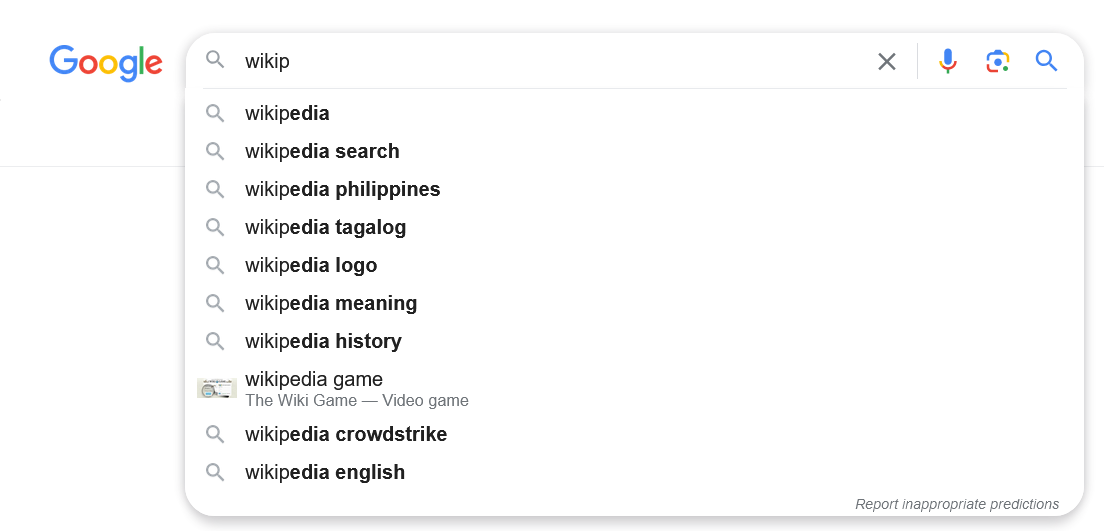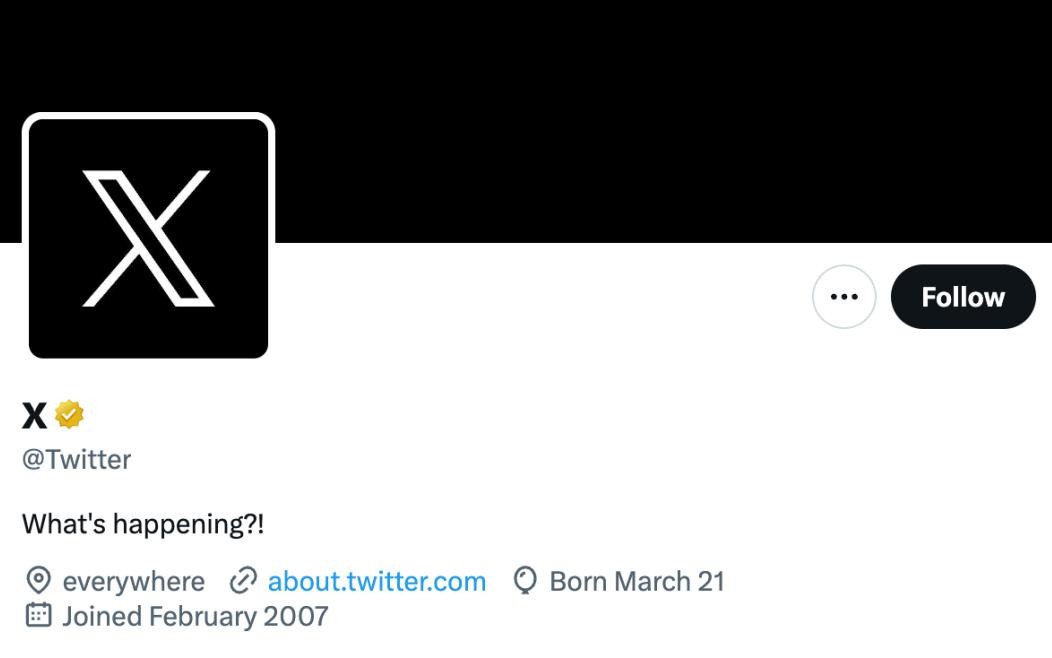
While using the internet, people often fall into the trap of a filter bubble, also known as an echo chamber. A filter bubble is defined as an online environment that exposes people only to opinions and information that agree with their own beliefs. This can create significant problems for people regarding their ability to discern bias. After all, if someone is only exposed to a certain set of views, they cannot see the different views of other people, and cannot distinguish their personal views from the unbiased truth. That is why everyone must know how to recognize filter bubbles and avoid entering them. In this article, we will use examples to teach readers how to identify filter bubbles and explain how to avoid them.
Examples of Filter Bubbles
Filter bubbles are personalized digital environments created by algorithms that selectively present information based on a user’s past behavior, preferences, and characteristics. These algorithmic echo chambers can significantly limit exposure to diverse perspectives and create isolated information spaces where users primarily encounter content that reinforces their existing beliefs and biases. While personalization can enhance user experience by providing relevant content, it can also lead to intellectual isolation and polarization. The following examples illustrate how major tech platforms create and maintain filter bubbles. From YouTube’s video recommendations to Google’s search suggestions and Twitter’s activity tracking, we will examine the ways in which filter bubbles manifest across various platforms, contributing to a broader discussion about the complex relationship between technology, society, and the dissemination of information.
Filter Bubble: Youtube Video Recommendations
One instance of echo chambers is those created by YouTube recommendations. In YouTube and the Filter Bubble, Boyd explains:
“YouTube will generally populate your personalized version of your homepage with videos from channels you’re familiar with, and ones that it thinks you might like…one will get stuck seeing the same kind of content over and over again…one tends to be presented with similar kinds of information and sources based on one’s search history and browsing habits…”
After learning information about someone’s activity, such as their search history and browser history, YouTube mostly displays videos that the user will enjoy–which includes videos that align with the user’s political opinions. For example, in Tech Transparency Project’s YouTube Filter Bubble Problem is Worse for Fox News Viewers, the author writes that YouTube “…fed Fox News viewers an endless stream of right-wing content…” The fact that YouTube recommends the same kind of content means that users will not be exposed to videos with opposite perspectives.
Filter Bubble: Google Search Suggestions
A second example is the echo chambers made by Google’s search suggestions. One way Google creates these is by using one’s past searches. Google is finally admitting it has a filter-bubble problem, Hao describes:
“Open Google in two tabs and search ‘are reptiles good pets’ in one and ‘are reptiles bad pets’ in the other…In the first instance, Google will feature a snippet of text from ‘10 Great Reasons Why Reptiles Make Good Pets,’ a nod to your enthusiasm. The second will feature a snippet from ‘It’s Cruel To Keep Reptiles As Pets,’ in line with your hesitation. Essentially, the search engine reinforces your preconceived biases as a side effect of the way its algorithm parses your question.”

Google tends to provide results that agree with the sentiments typed into its search bar.
Filter Bubble: Google Search By Location
The second method that Google has for creating filter bubbles is by using one’s location. In ACT UP Evaluation Method, Stahura explains:
“Did you know that your search results will look different if you use Google on campus as opposed to using it at a cafe in Beverly? It’s because Google makes certain assumptions about you based on your IP address.”
People receive a specific set of search results based on their location, which may display specific views. As a consequence, it may be harder for people to find views that are different from this set. For instance, if one is using Google in a Democratic area, then the search results will comprise many Democratic opinions, and little center or Republican opinions.
Filter Bubble: Twitter Activity Tracking
Another site with an echo chamber concern is X. Morrie V describes this issue in Twitter: Where Filter Bubbles Thrive:
“It keeps track of the things you Like or Retweet, the people you follow. It keeps track of them too — all the content they interact with — and the people they follow, and so on. From this complex network, the algorithm slowly evolves an understanding of your commonalities so it can create a space that allows you to connect with strangers who share the same…you soon reach the stage where this is the only content you consume, thus creating a filter bubble.”

X records multiple facets of your activity, such as your liked posts, retweets, and who you follow. It then uses this information about your interests and opinions to fill your page with content that focuses on these opinions, and nothing different. This is what results in the bias, as Morrie V recounts:
“Still, it was rather eye-opening how much things had been warped as it traveled through the intertubes to each of our individual filter bubbles to reach us in the form of current news. Furthermore, it was shocking to realise just how ready I was to believe in what I saw without question. No research or inquiry. It’s here, on my timeline; like minded people whose views on the world I trust have liked Tweets about it; so surely, this must be what really happened.”
X users are mainly presented with content that aligns with their own views, while they are less exposed to those who disagree. This leads them to believe that they are in the objective right, since everyone else they see on Twitter agrees with them.
How to Avoid Filter Bubbles
Now that we have covered several examples of filter bubbles, you may be thinking to yourself, “I have to avoid filter bubbles when I go on the internet!” So, we will move on to several methods you can use to avoid them.
We will discuss three tips for preventing filter bubbles:
- Checking a variety of news sources
- Using a browser that does not record your activity
- Being open-minded toward people online who disagree with you
The first method is to check a variety of news sources. When you encounter a certain piece of news, research other sources that address the same topic to determine if it is biased. Morrie V advises, “I’m afraid this means that we, as users, must fully utilize our freedom of thought. This involves cross-checking your sources and perhaps turning to more reliable ones to confirm whatever ‘news’ may grace your feed.” The outlets that you research should be known for their reliability, and should come from all parts of the news bias spectrum. For instance, if you stumble upon a liberal article about healthcare, you should read conservative and center articles about healthcare as well.
Another strategy is using a browser that does not record your activity. As explained in the Miami Dade College article titled Fake News (and how to fight it): Filter Bubbles & Confirmation Bias, this kind of browser “…pledges not to track your searches or save any data about you. The less data collected about your online behavior, the less chance of your filter bubble affecting your search results.” If a browser does not track your searches, it will not know your interests or biases. This means it cannot use this information to change the content you see. The examples of these browsers mentioned in the article are DuckDuckGo, Qwant, Startpage, and Swisscows.
Finally, you can remain open to people online who have different views than yours. AVID Open Access’s Pop the Filter Bubble recommends:
“Don’t avoid the hard conversations; engage in them…Don’t unfriend those who disagree with you…Listen with the intent to learn.”
Rather than blocking their accounts or avoiding conversations with them, you should discuss your differences. Also, you should have a genuine willingness to learn from them, and possibly change your own opinions. If you communicate to others about how they disagree with you, you will be given a closer look at the perspectives outside your own filter bubble.
Because of how the internet feeds into people’s biases and surrounds them with content they agree with, many people are bound to get trapped in filter bubbles. And when this happens, they lose their ability to identify bias whenever it appears in their everyday lives. There is a multitude of culprits behind this, including YouTube recommendations, Google’s search suggestions, and Twitter’s records of user activity.
That is why it is important to know some of the keys to avoiding filter bubbles: checking various news sources, using browsers that do not track your activity, and staying open to people online who disagree with you. By being aware of the echo chamber problem and taking these actions against it, you will minimize the effect that media bias has on you.




























